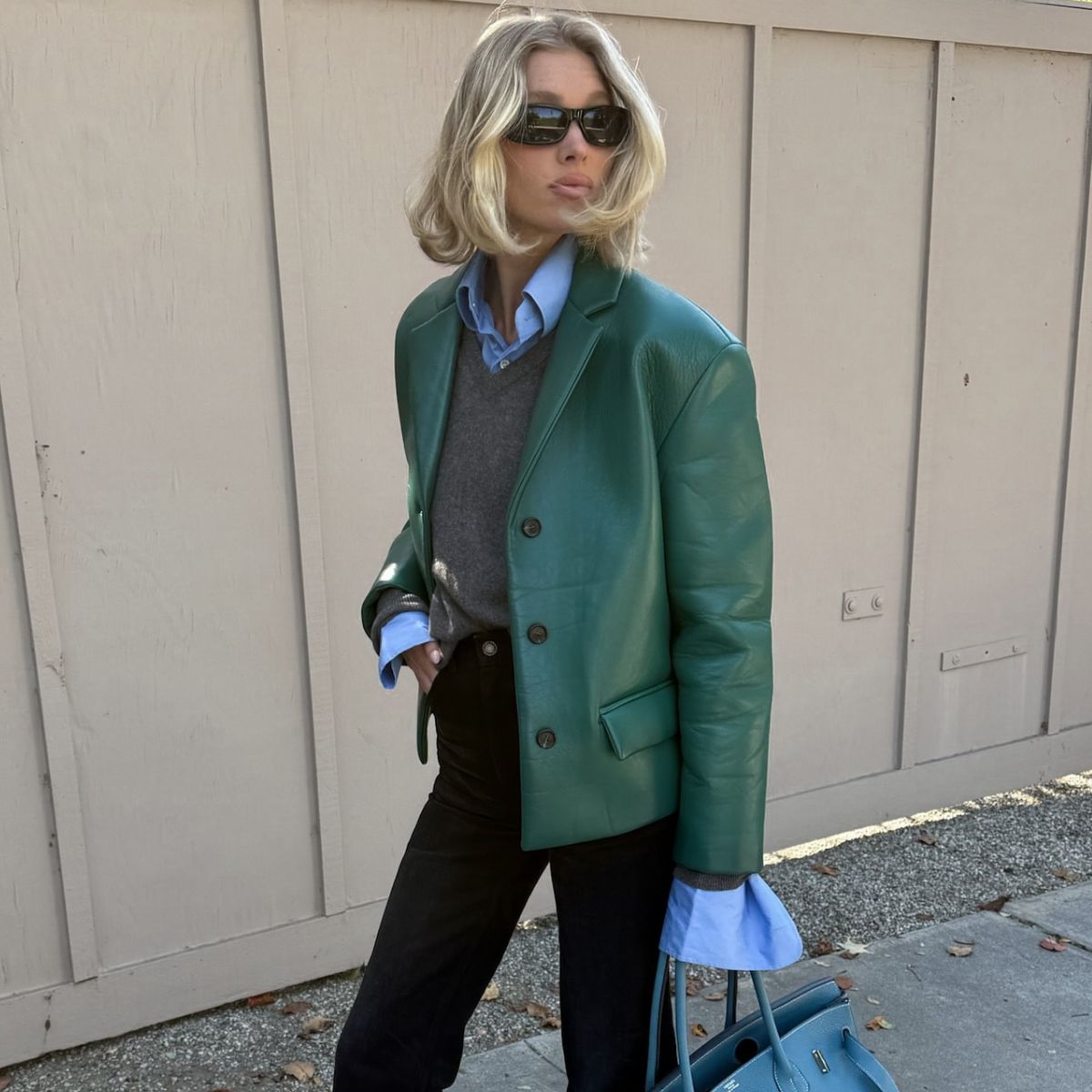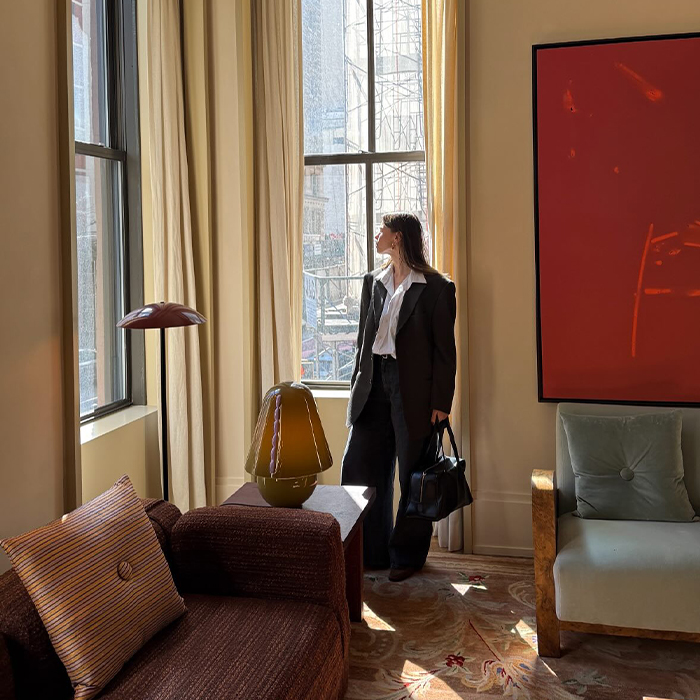Ebony Obsidian's Six Triple Eight Character Is a Lesson to Us All
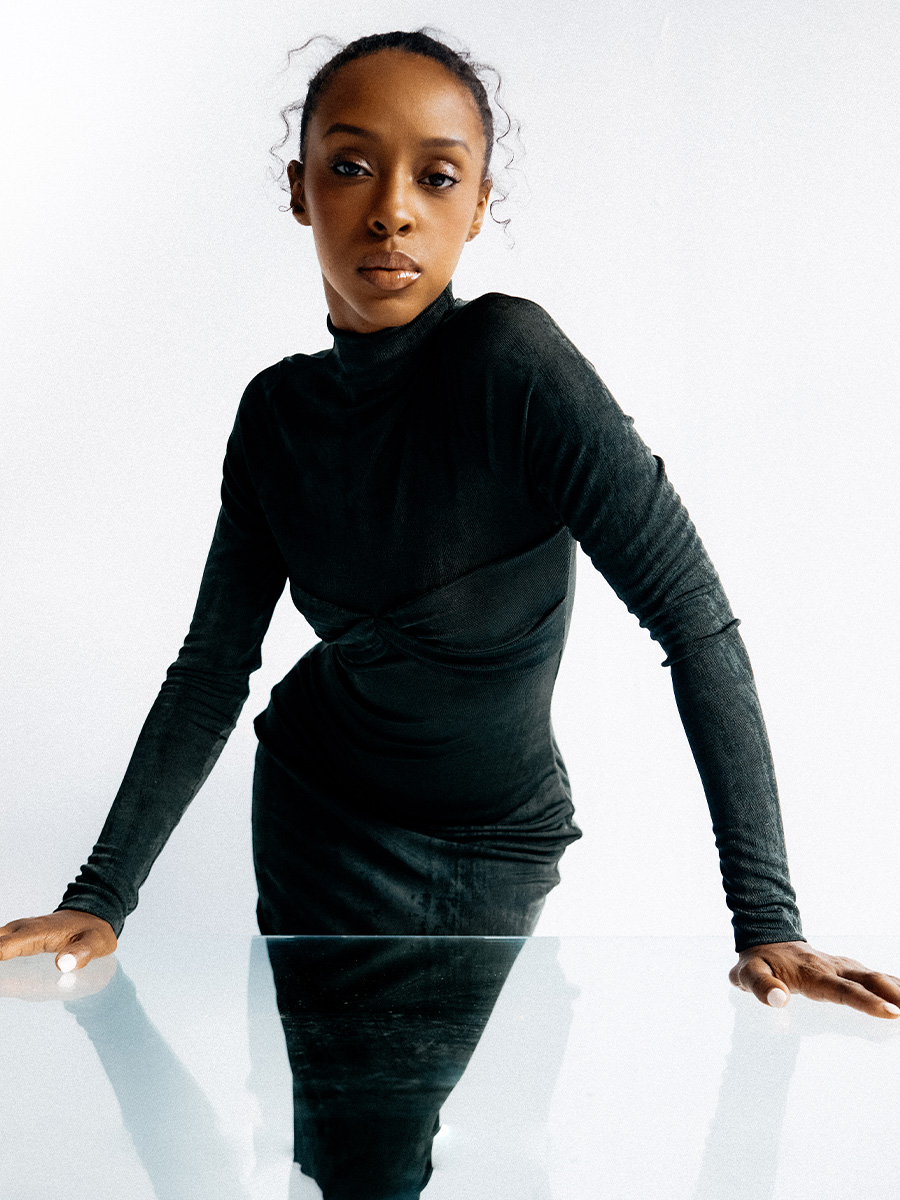
"It's very jarring and very few and far between that a script comes through and shocks you in this way," Ebony Obsidian says. She's referring to Tyler Perry's screenplay for the drama The Six Triple Eight. In the actor's mind, an epic story about the only Women's Army Corps unit comprised of women of color in World War II surely had to be fictional. But the contributions of the Black and Latin women of the 6888th Central Postal Directory Battalion are, in fact, a piece of history. It's just that most people didn't know their story—until now.
The Six Triple Eight is the incredible true story of the 6888th Central Postal Directory Battalion, a unit of 855 women tasked with what had been an impossible task up to that point: sorting through a three-year backlog of mail—17 million pieces to be exact—stuck in transit and delivering it to American soldiers far from home. Given six months to complete the task and facing intense discrimination, the women, led by Major Charity Adams, accomplished their mission in a record 90 days, providing much-needed hope to the front lines. It is a story of defying odds, bravery, and quiet heroism.
Having worked with Perry on his long-running television series Sistas, Obsidian was top of mind for the acclaimed filmmaker for the role of Lena Derriecott King, whose personal story of a small-town girl turned soldier was the inspiration behind the project. Little did she know the role would come at a time when she needed it most.
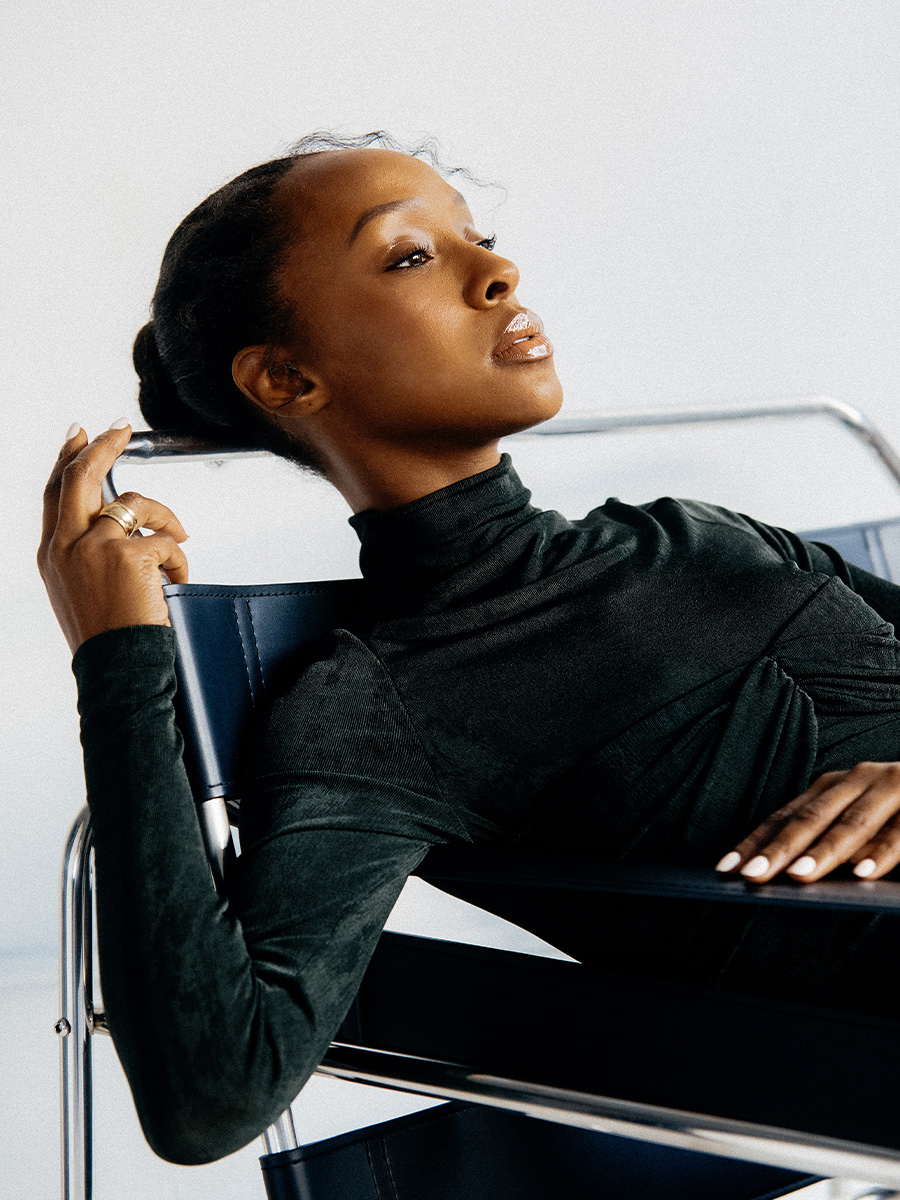
How familiar were you with the 6888th Central Postal Directory Battalion prior to working on this project?
I don't even think I ever had a thought of women of color in the army that is not present-day. My uncle is in the military and has been since I was a kid, so I knew that there were people of color [in the military] present-day, but I never thought about WWII time. You never see it in these films, which are predominantly white men in leading spaces. Not even a lot of white women.
And then Tyler sent me this script. He said, "I sent you something. Read it." Very Tyler Perry fashion, by the way. I read it from beginning to end, and I thought, "What an epic story, but is it fictional? Where did you get the inspiration for this?" And he was like, "No, this is history. This is a real story. It came to me, I wrote the script, and I would like you to be a part of it. What do you think?" At first, he never mentioned Lena. I was thinking he just wanted to know my thoughts on the script, and I told him that much. And then he was like, "What do you think about Lena?! Do you want to play Lena?!" I was so honored. You've seen the film, so you know just how ladylike and elegant women of that period were, so already, I'm like, "Oh, wow." To see her grow from a girl to a young woman, from being a small-town girl to a soldier at that time and accomplishing what she did with all those women, that was so inspirational to me. She's a lesson to us all, that we can become exactly what we never think we can.
I love that Tyler Perry came to you and, without much context, just said, "Read this."
It's very jarring and very few and far between that a script comes through and shocks you in this way. It was a very shocking experience to see this on paper and to see just how grand of a scale they were planning to make it as well. … As a Black woman [and] as a Black actress today even, there are a variety of experiences and a variety of scripts that come your way, but this is a very epic story, so it was just incredible to be a part of that.
What really struck you about the work these women did at that time?
Tyler visited Lena at the age of 99, and he sent me a video of some of their conversation, and the thing that struck me about her and that really made me drawn to her was just how average she was. She is a small-town girl who has very regular experiences—for the '40s period, by the way. She likes a boy, and she's about to go to college, and she works alongside her mom. She's the average American in a lot of ways, and that really struck me.
When I got the script and I saw how all of these women came together and they were using their skills from back home (some of them were perfumers, [and] some of them were morticians), they all did something that made this task accomplishable. Otherwise, it wouldn't have been. … Up until then, they were not able to figure out what is the key forward to this because this is an impossible task, and they sent us here knowing it was an impossible task. It just goes to show that anybody can rise to the occasion, no matter what the odds are against them. That was the thing that struck me. In this dank place that they were supposed to stay in while they did this huge task, they created hair salons [and] sleeping chambers and took care of one another. [Major] Charity Adams made sure her girls were taken care of, and that was just so beautiful to see in a script.
Our premiere, that was the first time I saw the film. I think I was holding my breath a bit. This film came to me, this role came to me, [and] Lena herself came to me at a time when I really needed to learn how to overcome on a personal level. My mother was transitioning at the time, so I almost wasn't able to be a part of this incredible world, so I waited for the premiere, where I could sit down with all my cast and the creators behind it and everyone who came into town to support. I think that was the right time for me to see it because there was a lot of love in the room. I looked crazy by the end of the film, but it was a beautiful moment.
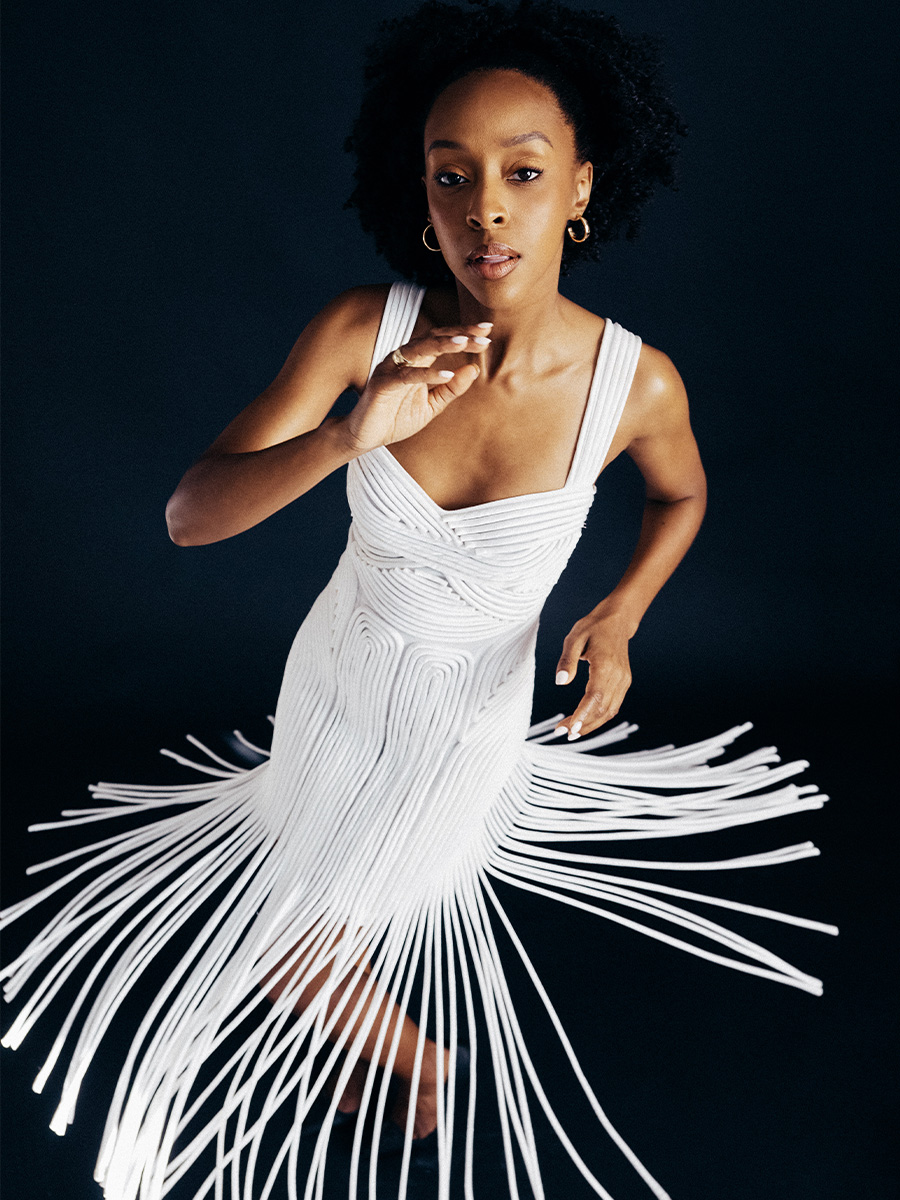
That's so special. That scene when Major Charity Adams stands up for her women, that was so powerful.
Just imagine that, though. Charity Adams—played by Kerry Washington, who was incredible and the perfect pick for this role by the way—not only did she embody the character, but she was so kind and giving and protective of all of us on that set and off the set. She's now a friend. [Adams] was 26 years old. Lena was 17. Just look at the dynamic between them, the amount of respect [Lena] had for her superior who was 26 years old. They would have been Forbes 30 Under 30! It's just wild to think about.
You are telling the story of these women that isn't widely known. Can you talk about that responsibility of bringing their story and work to the big screen and how that was felt in the filming process?
I'm still trying to figure out how to articulate what this experience is and has been for me. I took on this incredible young woman, a role that I didn't know I could take on, and it was my mother who told me to take the role. One of my nicknames as a kid was soldier. I don't know if this is a full-circle moment, but that was a huge factor in why I was able to be a part of this world. On top of that, this is the first time that I'm playing a real person who was still alive at the start of this process. Lena did pass away at the start of this year in January, but she did see the film. She was the one person who I had the most to prove to. She was 100 years old when I met her, so I was like, "How do I do this? What do I have to contribute to this space?" But I had to remind myself that I was coming in as Lena at 17 and coming in as Lena, the one who doesn't know her own bravery, who doesn't know her own capacity and strength yet. That was the journey of this film. That took a little bit of pressure off.
In meeting her, she was so vibrant and so sharp and so giving in terms of sitting with me and speaking about her life and Abram—the Jewish boy who she fell in love with in her town in the '40s, where she wasn't even allowed to get in the car with him. So yes, I had a lot of pressure at the beginning.
Was there anything else that helped inform your performance outside of meeting Lena?
Well, of course, meeting her was hugely helpful, but I didn't meet her until about a third of the way through filming. Up until then, I had only seen some interviews that were online [and] what Tyler sent me, their conversation, and that was beautiful because she has such a specific voice. I did have the gift of her being from the Northeast. I'm also from the Northeast, so I was like, "Okay, okay, we're closer than farther away." But we definitely started with the voice. For me, I wanted to figure out how to be that form of ladylike—the women of the '40s, how they spoke, how they enunciated their words, how much higher their voices were—because that's what ladies do. They speak up here. My voice is actually pretty low. I had a wonderful dialect coach, and we focused on that.
Also the uniforms, we had an incredible team pulling these looks together. My tie was an original from the 1940s. It wasn't even a replica. Certain pieces were authentic, and then certain pieces were so beautifully replicated that you couldn't even tell. We shot two thirds of the film in Europe. That march is down the streets in England. You can't not be present in situations like that. The scene where you see the blown-up bus, that was taken from a newspaper clipping back then. The nuance, again, was really unmatched. This was the first … project really for me that was one from the '40s. That's the earliest I've ever done period piece–wise, and you really felt the importance of it. Everyone felt so… I almost want to say agitated, but not in a negative way. There was this energy that felt like friction that was heating us all to move forward, and it often felt like the spirits of these women were over us as well. Everyone came prepared to contribute the very best of themselves.
You touched on the wardrobe a little bit. Part of the fun of doing a period piece has to be the costumes. While you do have the military uniforms for the majority of the film, there are those moments at the beginning when you see these women in their everyday lives and how they dressed.
By the way, the uniforms are one thing, but the undergarments are what took the longest to put on. That's really what kept us standing straight. You really couldn't bend or do anything that was not … ladylike but also soldierlike, so there are these two levels playing into the position that you hold your body on a regular basis. It keeps you in it.
Do you have a favorite look of Lena's?
Well, inside the uniform, my favorite look is the dance scene because she gets to let her hair down. I remember them preparing us for that, and that was so fun because [the women] were all so girly in that scene. They are all just girls at a dance. Some of them may have never been to a dance before. Lena was 17. I'm not even sure she had a chance to do that. Not only being her age but also being a young Black girl, she might not have had that, so this was so new and refreshing to her.
Outside of that, there is such a pretty dress in the car scene with her and Abram. That floral dress was so fun, but so was the costume when they were lining up to get their uniforms, and she has this navy-blue hat. She's so put-together and prepared for this thing, and it's funny because then they strip that all down, and now, everyone looks the same because now they're a unit. That was a beautiful thing to play with. I'm glad she got to do both and get to see her life a little bit before.
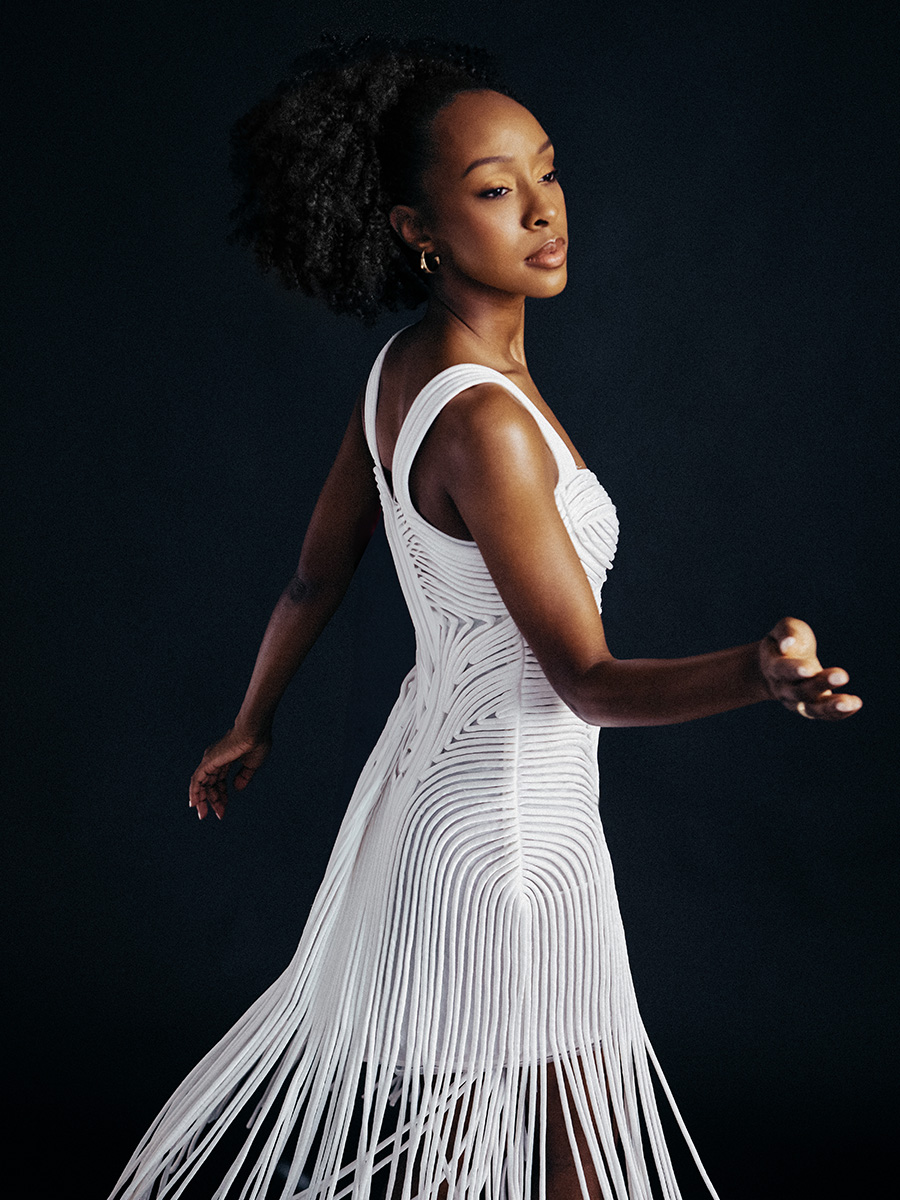
This isn't your first time working with Tyler Perry. What do you love about him as a filmmaker?
I had to check the year because I'm so bad with time, but I'm pretty sure [Sistas] came out in 2019. This was right before the pandemic. So much life has happened, and we've all had similar experiences with it, but eight seasons. I just want to say that. Eight seasons, which is… wow. For today, for a show to be able to have that and still have people engaged and active in our characters and the storyline is such a privilege. That being said, I always thought that if I worked with Tyler Perry, it would be on a film. I don't know why, but it was always like, "Oh, Tyler Perry. Maybe we will do a film some day together." And then we shot over 100 episodes of television together, and then this film came.
One thing I love about him is from the time he takes on a project, he knows exactly what he wants to do with it. He knows exactly the direction he wants to go, and he also knows what he doesn't know and where he wants you to step in and fill in the blanks and contribute to that story. The film was different because it was a historical film, so he had even more care. He brought in Debbie Allen for the dance sequence and the marches. He brought people in to make sure this story was told the right way and honor these women the best that we possibly could. That's something he's very good at. He has not gotten to where he is by not knowing which direction that he wants to take, which is authentic to his voice, his artistry, and his legacy.
Now that it's out in theaters and coming to Netflix on December 20, what do you hope audiences take away from this film?
Well really, the one thing that I mentioned resonated so deeply with me is the everyday person who made such a big difference. It's easy to feel helpless, and it's easy to feel like one person cannot do whatever it is, and that's just not the truth. The truth is every individual counts. I think it's interesting the timing of when this film is coming out. In our country, in this political climate, it's perfect timing. I think it should inspire people to know that we are better when we are united. You can disagree, but you do need to come to a common ground that serves everyone, that is inclusive of everyone. I hope that people watch this film, especially women of color, and see that Black women and also Latina women stood together at this time, that they were the first to do it, and that everyone who has come after them are the recipients of their hard work. I met so many military people during this time—women especially, young women who just graduated and went straight in—and they feel so seen. They feel so seen in a way that they [don't] on a regular basis, so I hope that they feel honored and respected that we're hoping to do for these women. I just hope that people take away the hope of it all. … They went through some atrocious things, but look what they did. It's a great Christmas film.
The Six Triple Eight is streaming only on Netflix.
Team Credits:
Photographer: Menelik Puryear
Stylist: Alexandra Mandelkorn
Hairstylist: Ikeyia Powell
Makeup Artist: Veronica Gaona
Jessica Baker is Who What Wear’s Executive Director, Entertainment, where she ideates, books, writes, and edits celebrity and entertainment features.
-
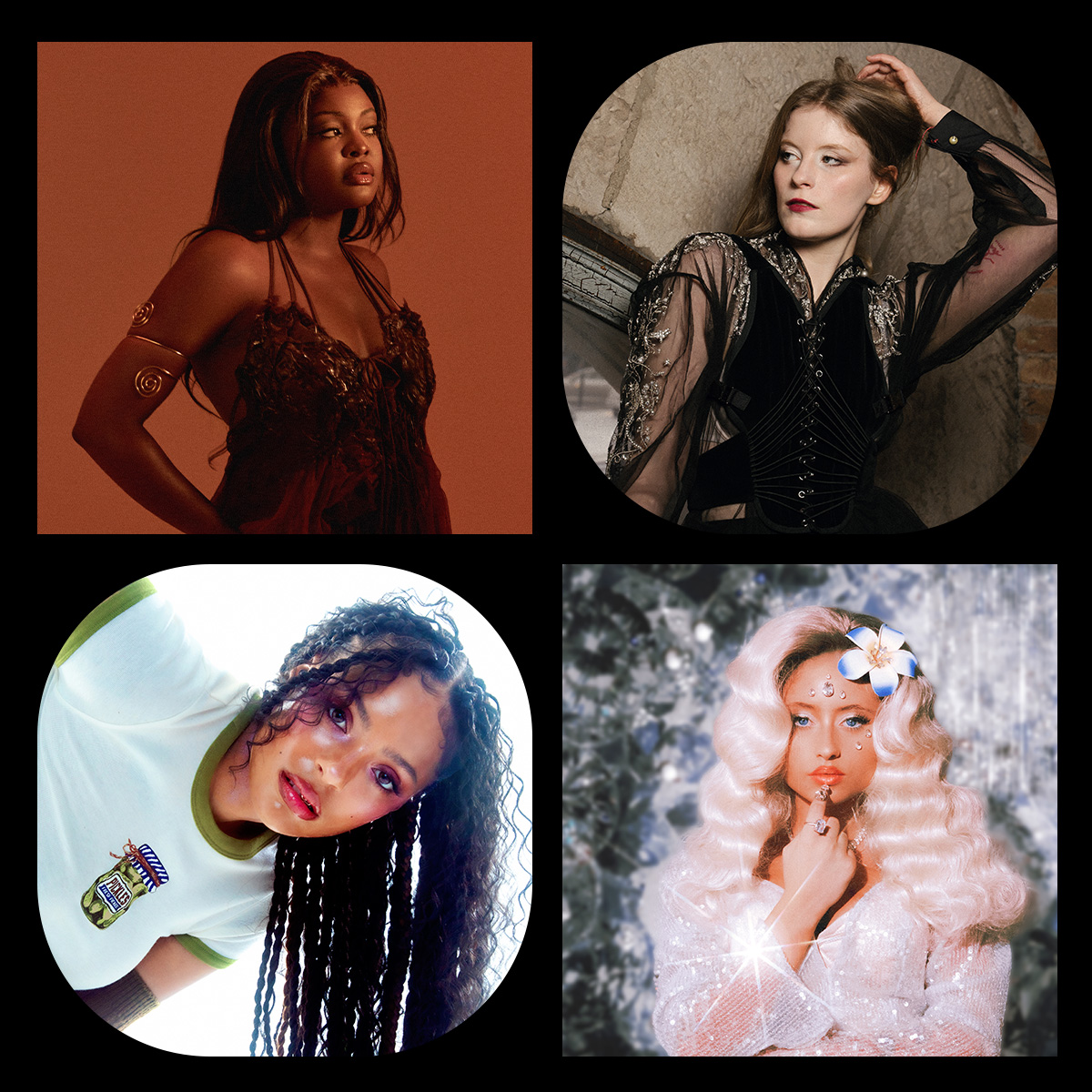 6 Artists Taking Over Our 2025 Playlists
6 Artists Taking Over Our 2025 PlaylistsAnd yours next.
By Jessica Baker
-
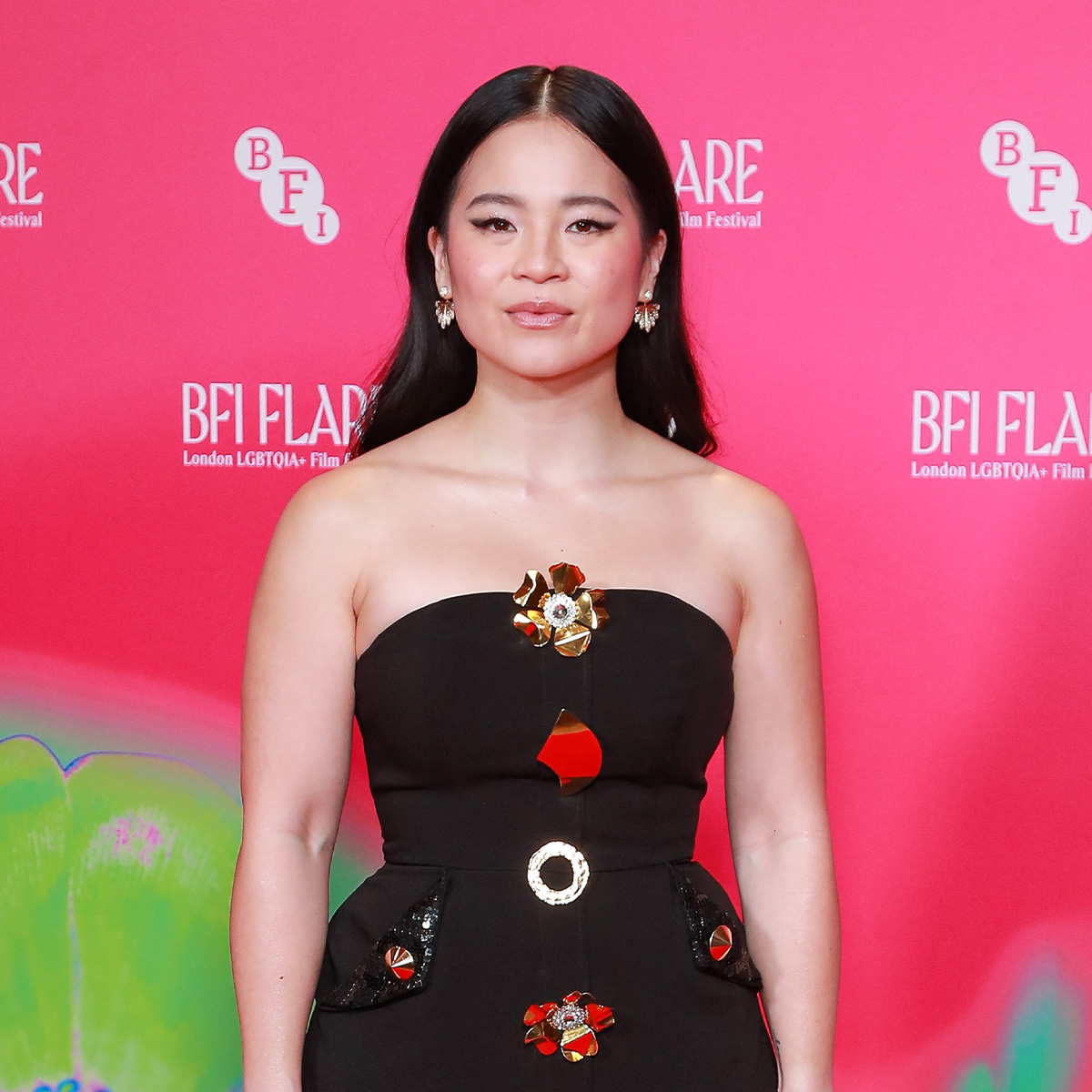 Kelly Marie Tran Cordially Invites You to a Celebration of Queer Joy
Kelly Marie Tran Cordially Invites You to a Celebration of Queer JoyRSVP to the rom-com of the season, The Wedding Banquet.
By Jessica Baker
-
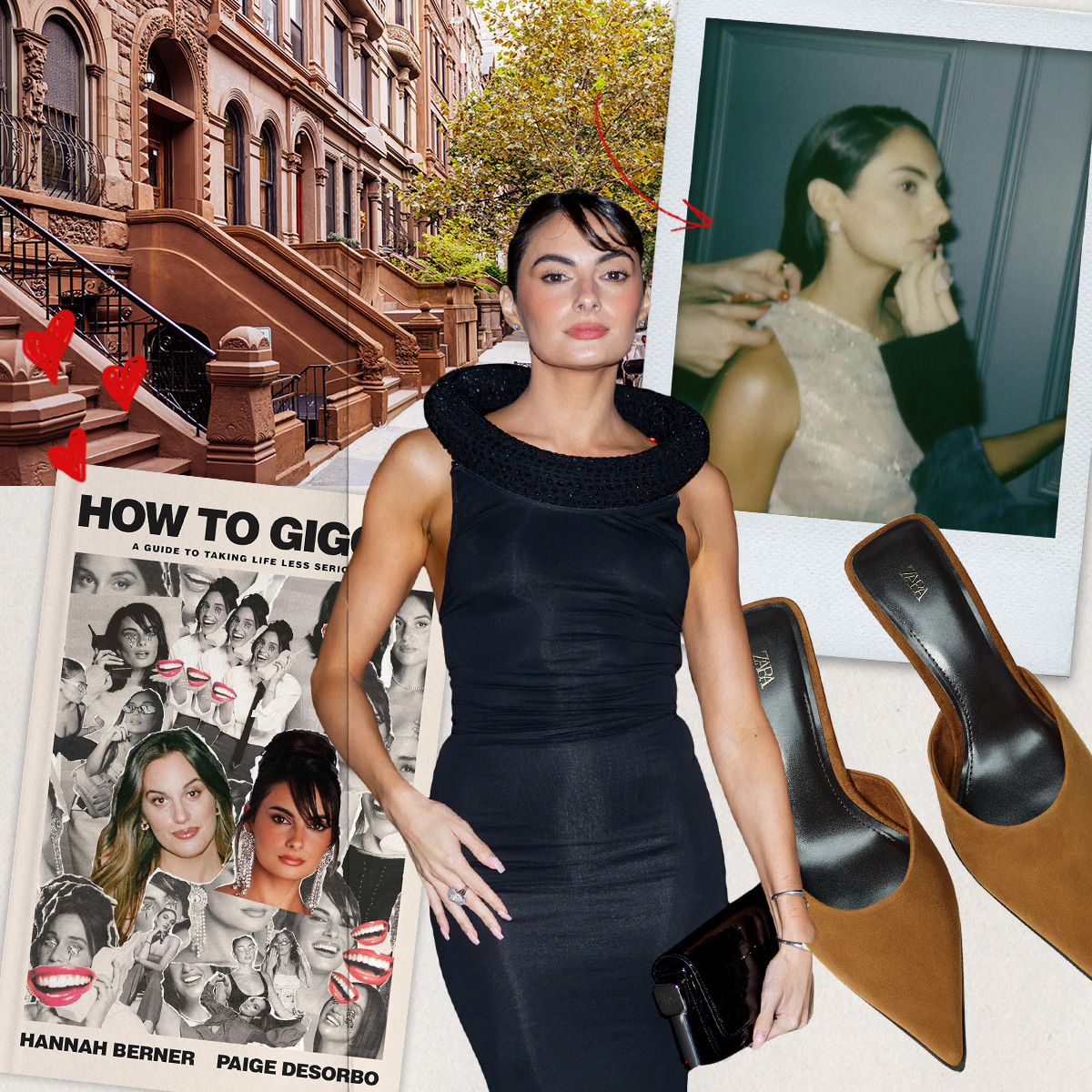 Paige DeSorbo's World: Her New Book, Favorite Zara Item, and What She Loves in Her Dream Apartment
Paige DeSorbo's World: Her New Book, Favorite Zara Item, and What She Loves in Her Dream ApartmentEverything going on in this It girl's universe.
By Bobby Schuessler
-
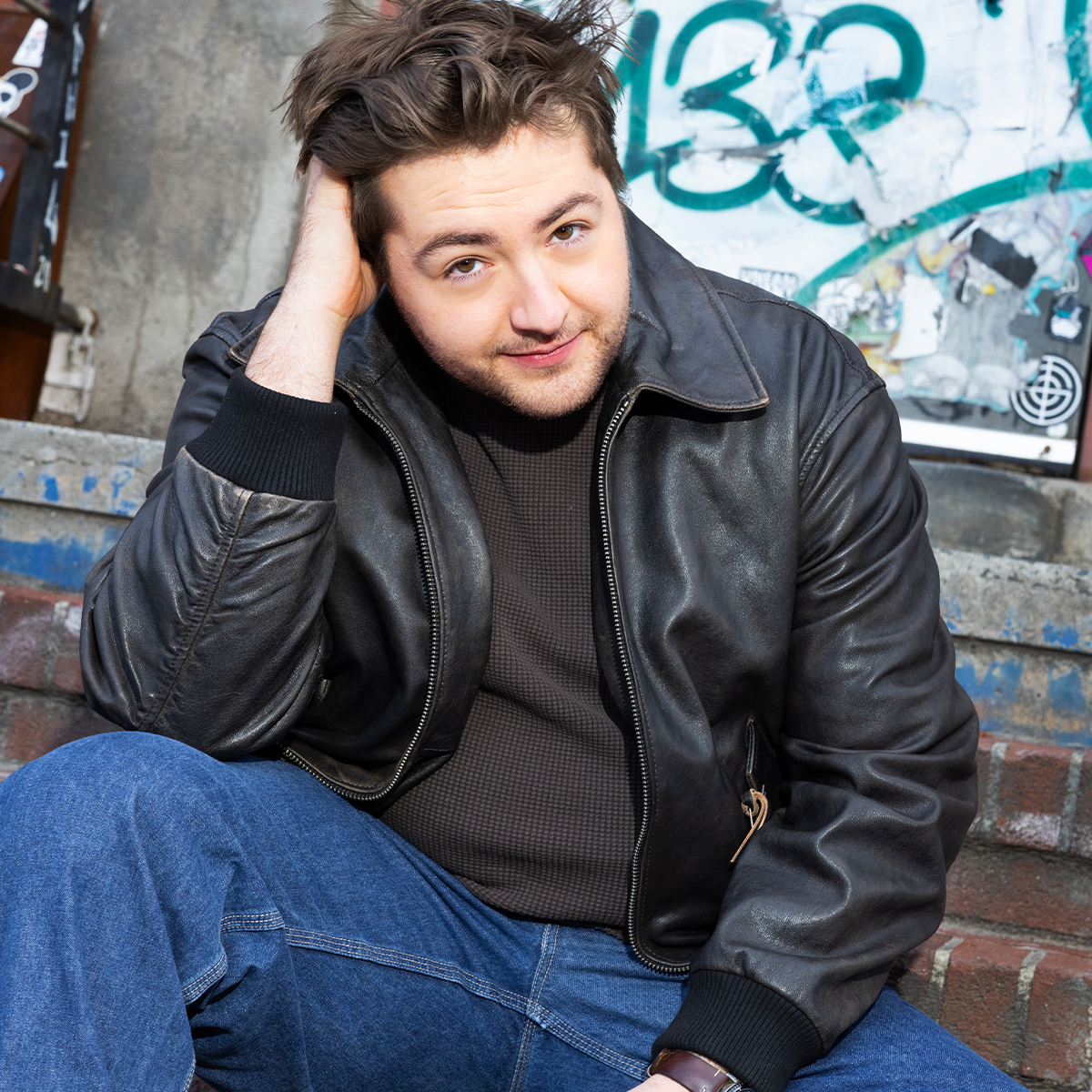 Michael Gandolfini Is Right on Time
Michael Gandolfini Is Right on TimeWith the anticipated finale of Daredevil: Born Again and A24's Warfare, the actor strikes a high note this month.
By Jessica Baker
-
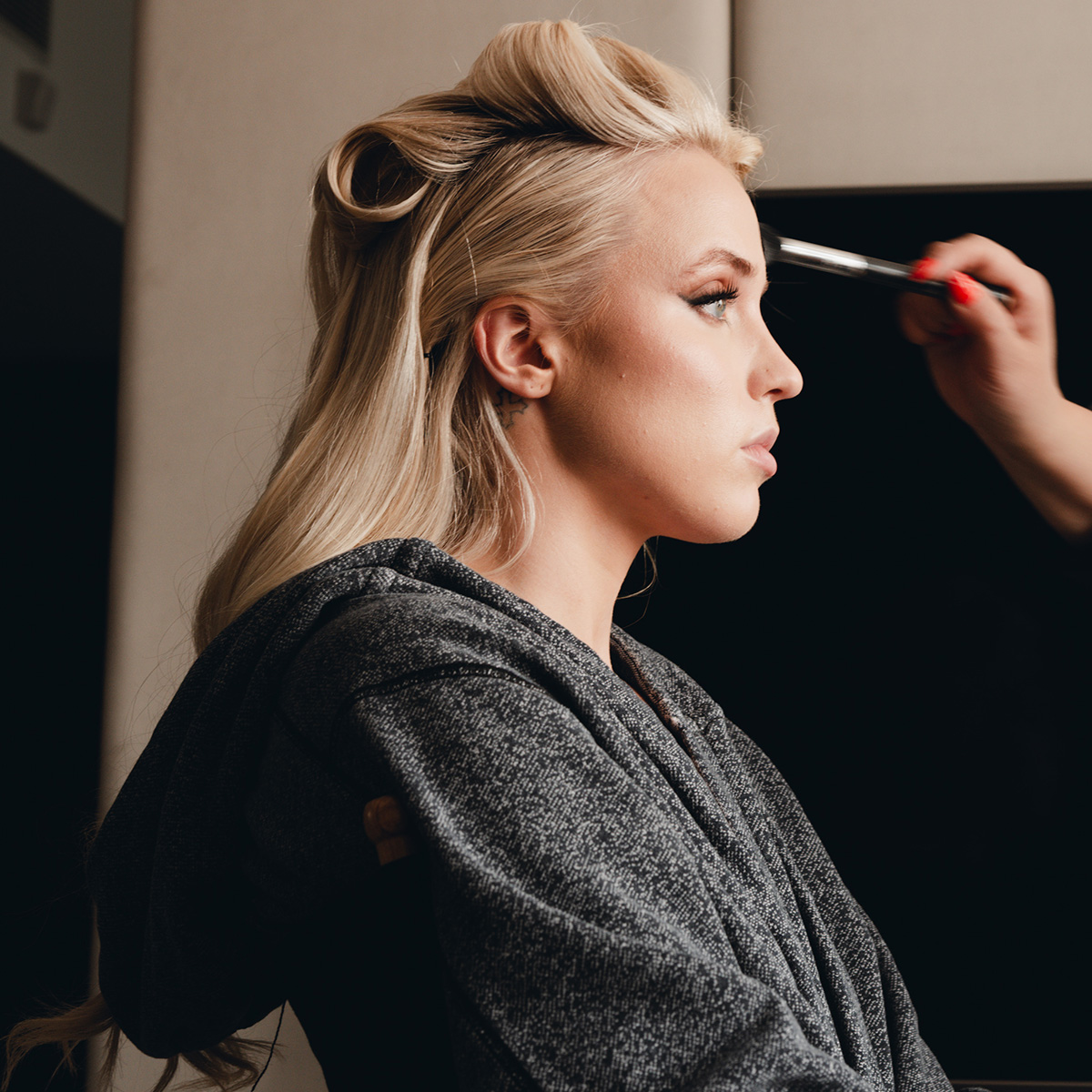 Hailey Van Lith Went Pro in Custom Coach, the Official Handbag Sponsor of the WNBA
Hailey Van Lith Went Pro in Custom Coach, the Official Handbag Sponsor of the WNBADetails inside.
By Eliza Huber
-
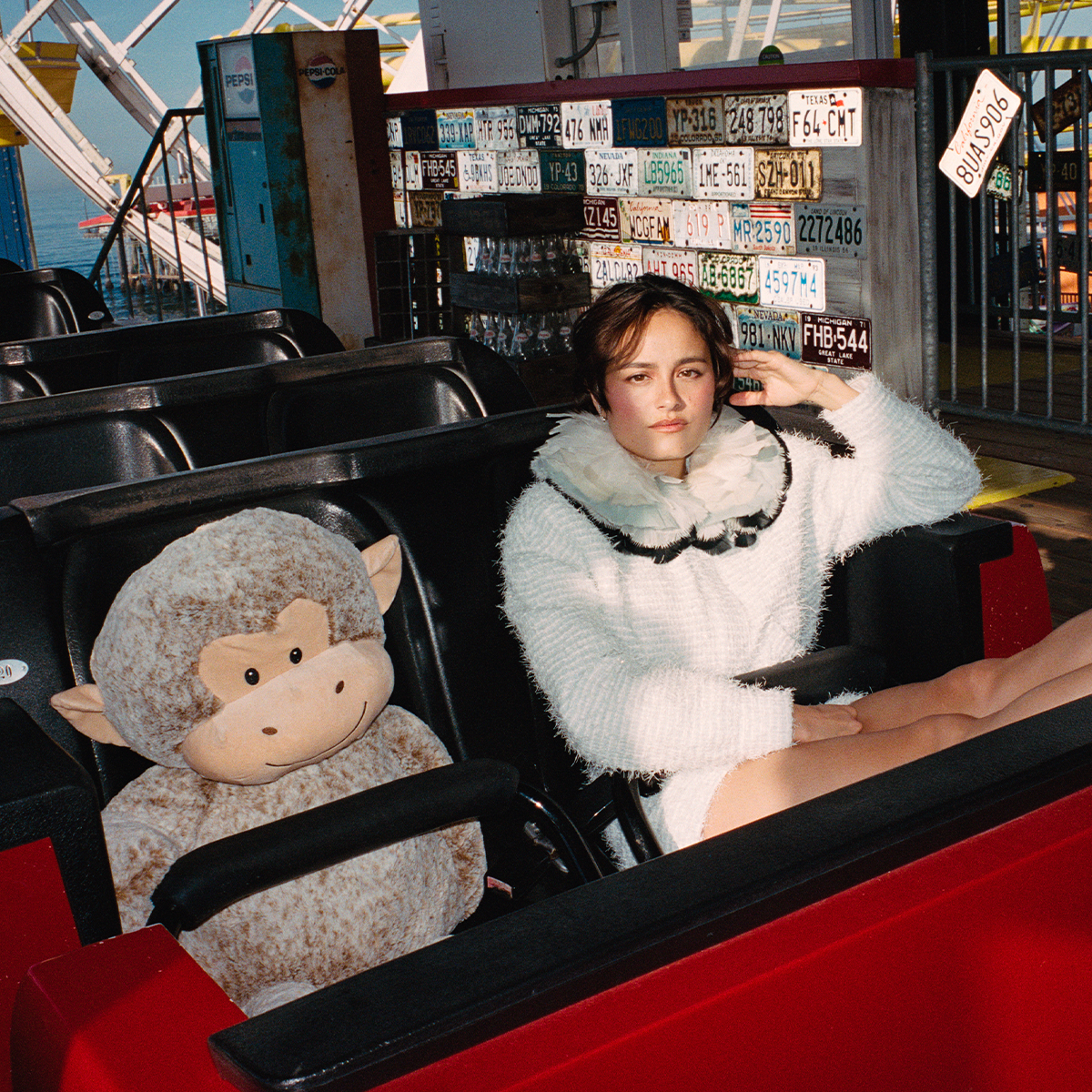 Chase Sui Wonders Demands Your Attention
Chase Sui Wonders Demands Your AttentionThe burgeoning actress came of age with Seth Rogen's movies. Now, she's starring in his latest project—The Studio, the Hollywood meta comedy now streaming on Apple TV+.
By Anna LaPlaca
-
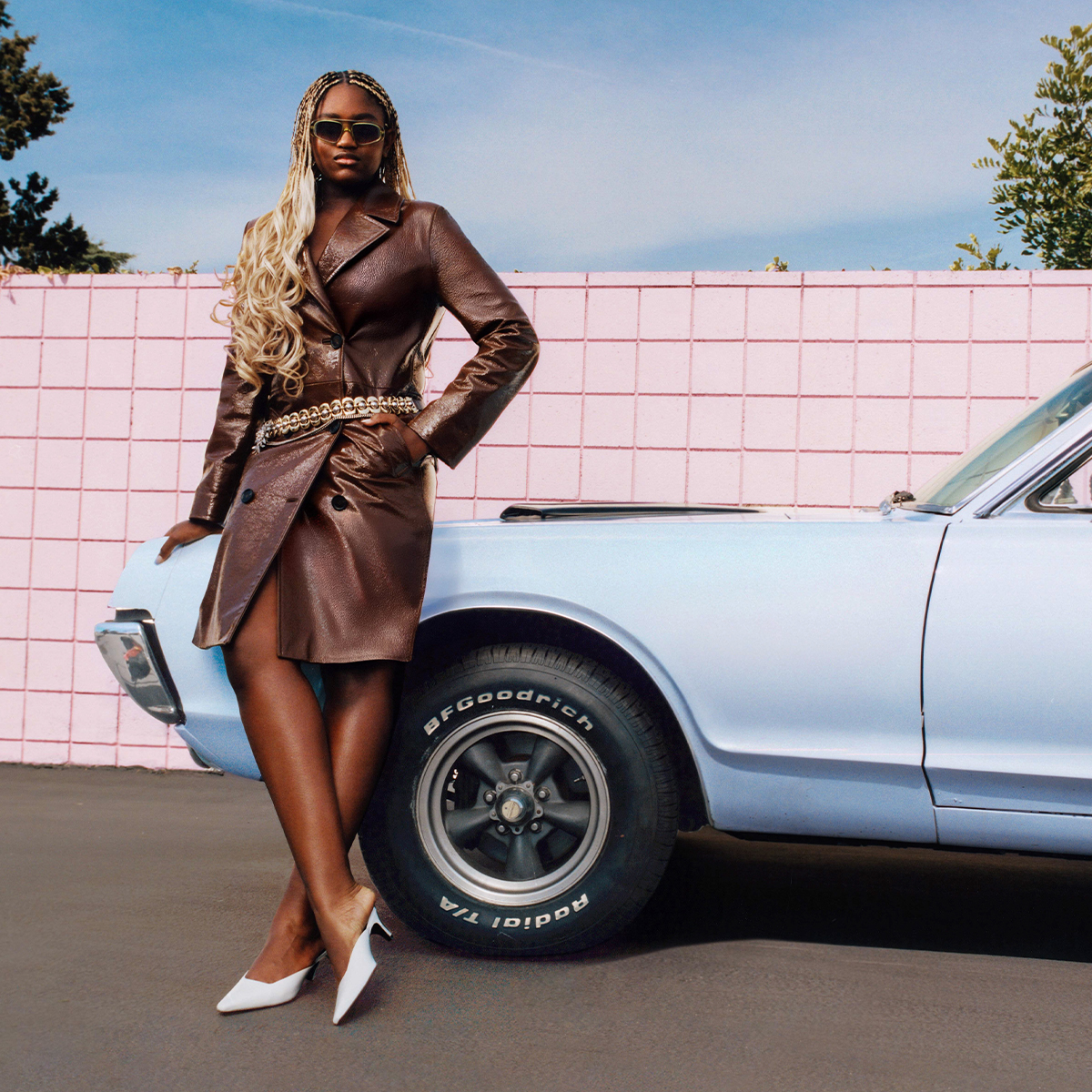 Reimagining Girlhood With Zaya Wade
Reimagining Girlhood With Zaya WadeAt just 17 years old, Zaya Wade is rewriting the narrative on what it means to be a Gen Zer.
By Ana Escalante
-
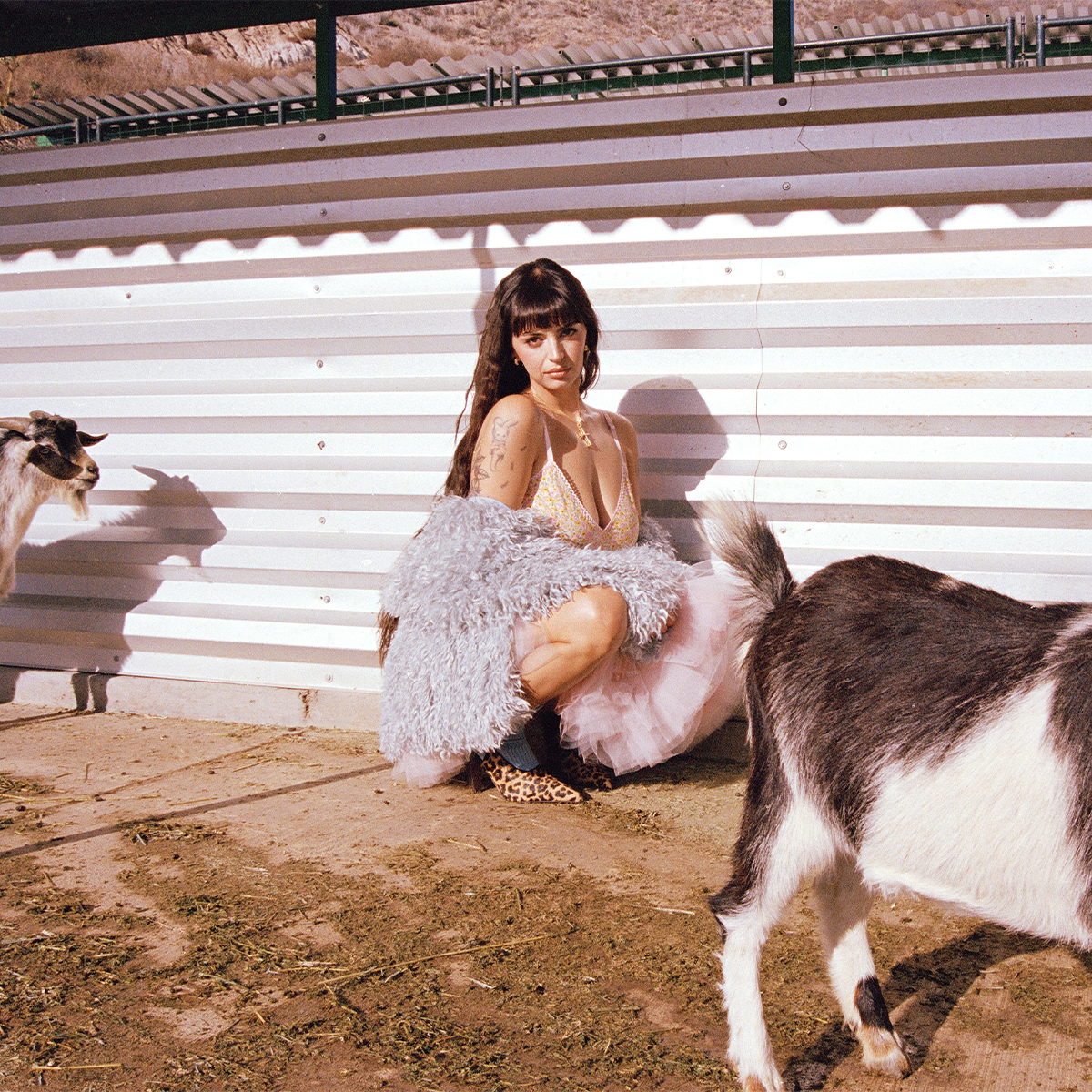 Rebecca Black Is Back and Ready to Show You All of Herself This Time
Rebecca Black Is Back and Ready to Show You All of Herself This TimeThe "Friday" singer has a brand-new pop EP, Salvation.
By Jessica Baker
